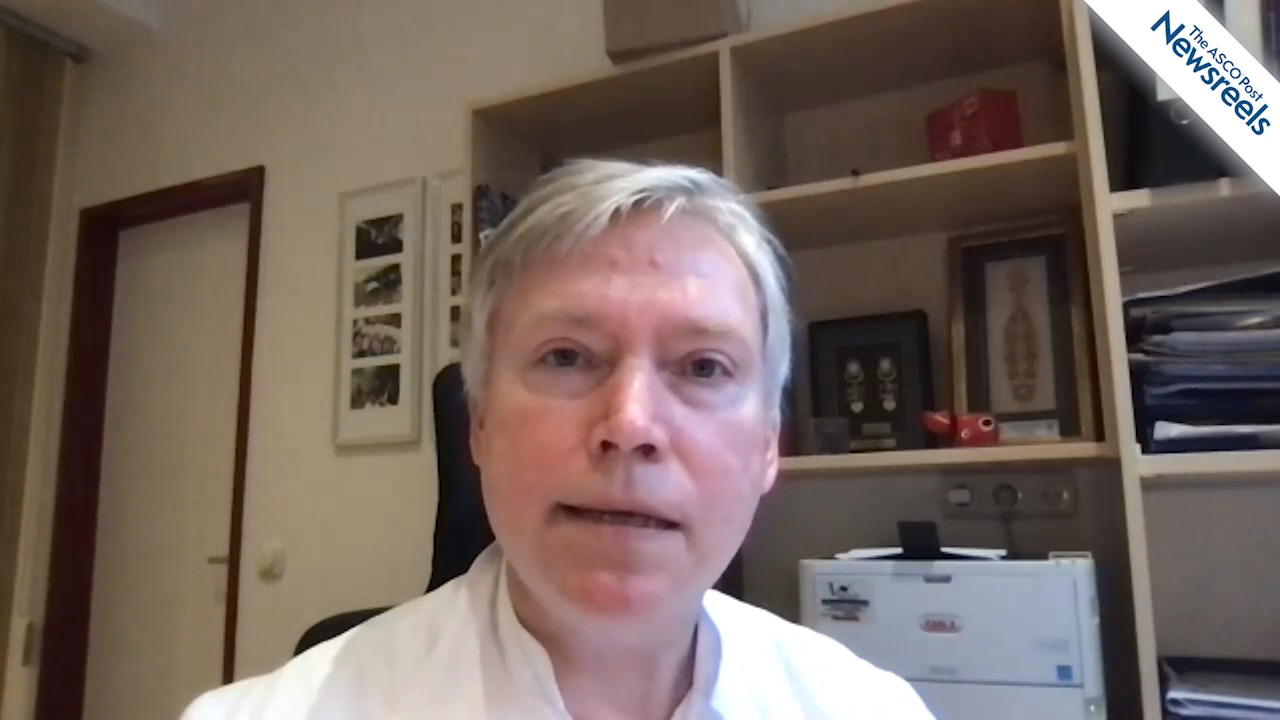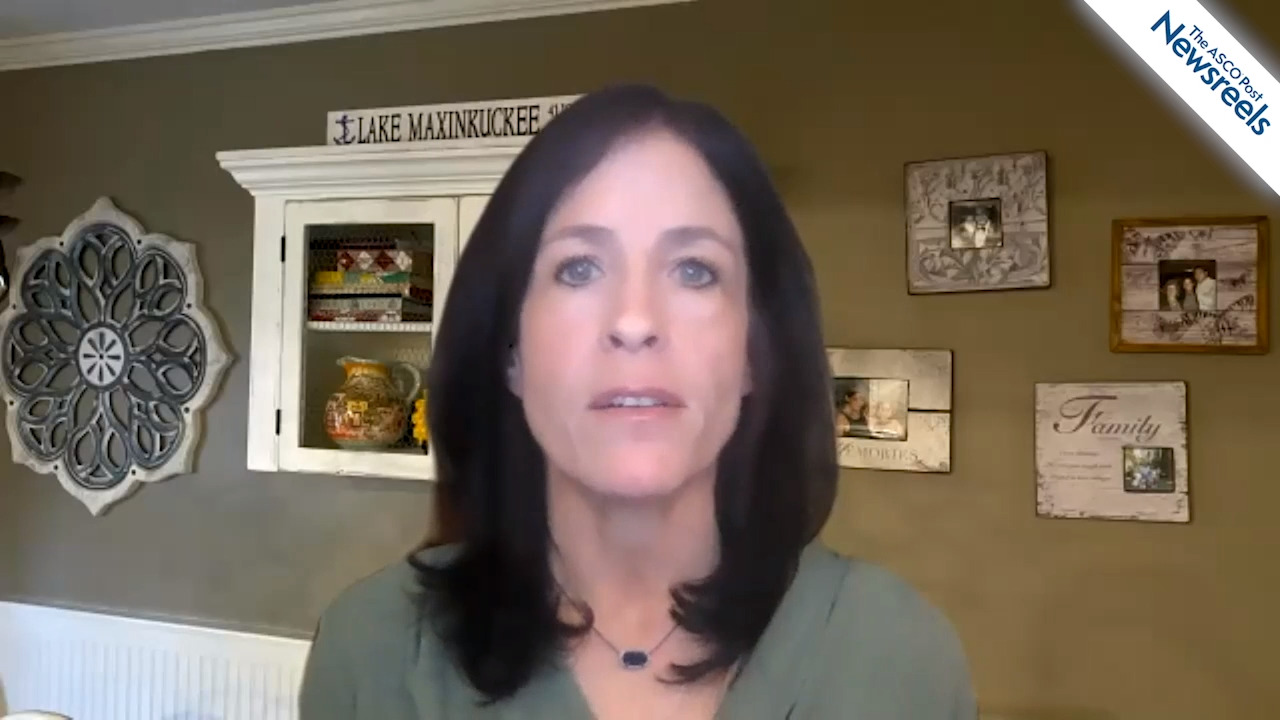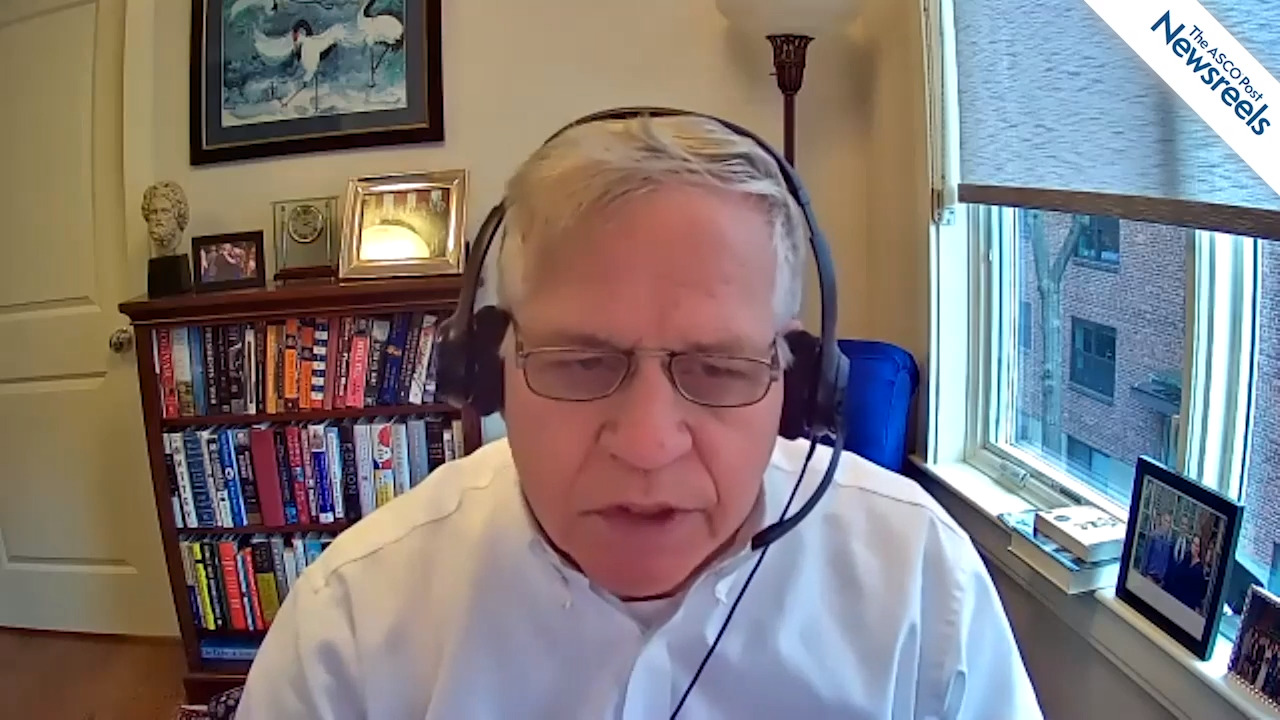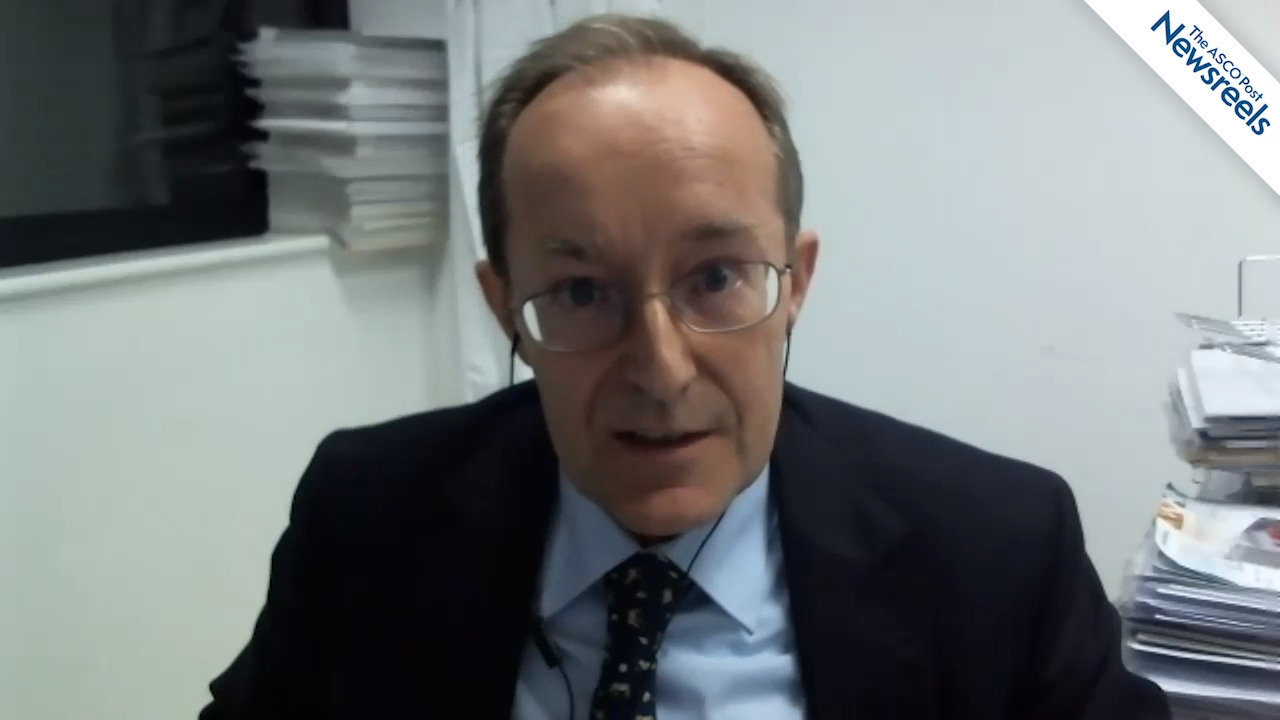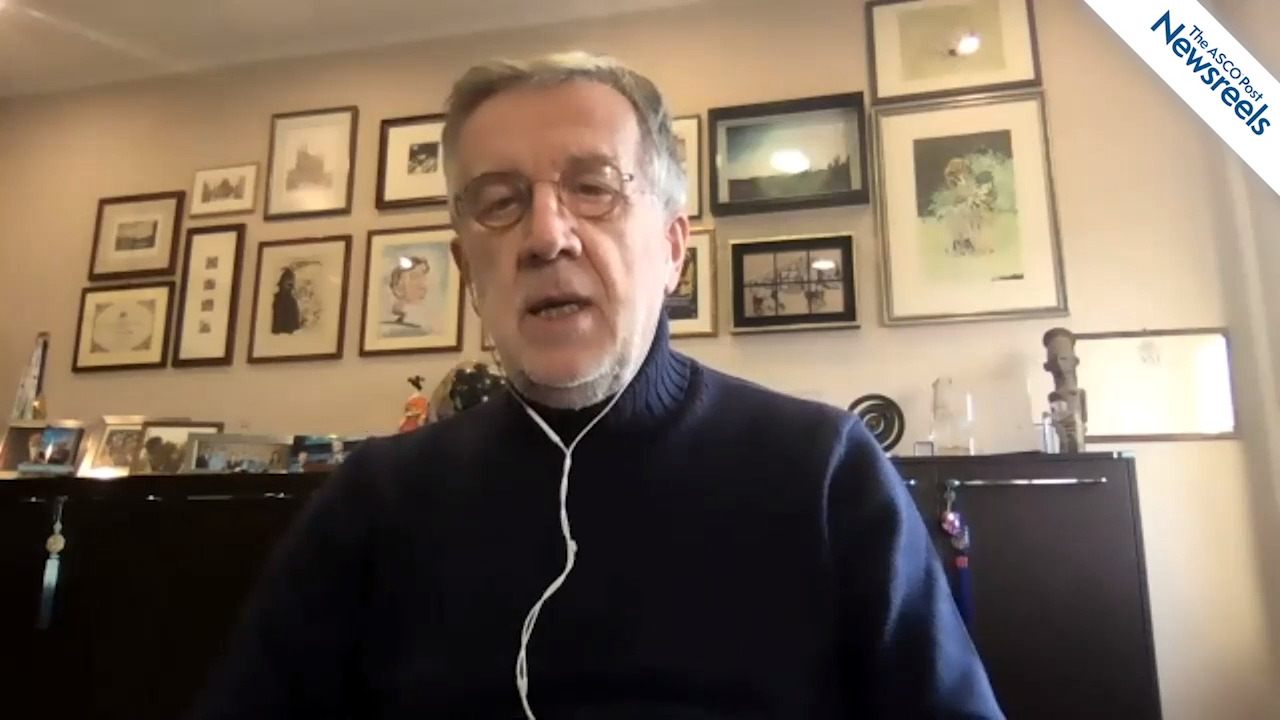Hossein Borghaei, DO, on Bispecific T-Cell–Engager Immune Therapy for Small Cell Lung Cancer
IASLC 2020 World Conference on Lung Cancer in Singapore
Hossein Borghaei, DO, of Fox Chase Cancer Center, discusses phase I results from a study of AMG 757, an experimental bispecific T-cell–engager (BiTE) immune therapy aimed at the DLL3 molecular target in patients with small cell lung cancer. At this early stage, results show clinical efficacy and safety, with 37% of 51 evaluable patients exhibiting disease control (Abstract OA11.03).
The ASCO Post Staff
Martin Reck, MD, PhD, of LungenClinic, discusses results from the IMpower133 study of carboplatin plus etoposide with or without atezolizumab in patients with untreated extensive-stage small cell lung cancer (Abstract OA11.06).
The ASCO Post Staff
Jill Feldman, a patient advocate who has lost five family members to lung cancer and is herself a 12-year cancer survivor living with EGFR-positive disease, describes her family history of cancer, how she has worked with her physicians for more than a decade to survive her own diagnosis, and the message she would like all oncologists to hear.
The ASCO Post Staff
Bruce E. Johnson, MD, of Dana-Farber Cancer Institute, offers his expert perspective on single-arm drug approvals for targeted agents between 2016 and 2020, the need for biomarker testing, and the societal costs of drug development (Abstract PL04.03).
The ASCO Post Staff
Luis M. Montuenga, PhD, of the University of Navarra, discusses the potential contributions of biomarkers, promising biomarker panels being tested and published, the need to standardize biospecimen collection, and how to improve the sensitivity of these biomarkers (Abstract PL05.06).
The ASCO Post Staff
Giorgio V. Scagliotti, MD, PhD, of the University of Torino, talks about why he believes that many more patients with lung cancer can be cured within the next 4 years, given decreases in mortality rates, widespread use of targeted treatments and immunotherapies, and earlier diagnoses as a result of systematic screening with low-dose CT (Abstract PL05.08).
